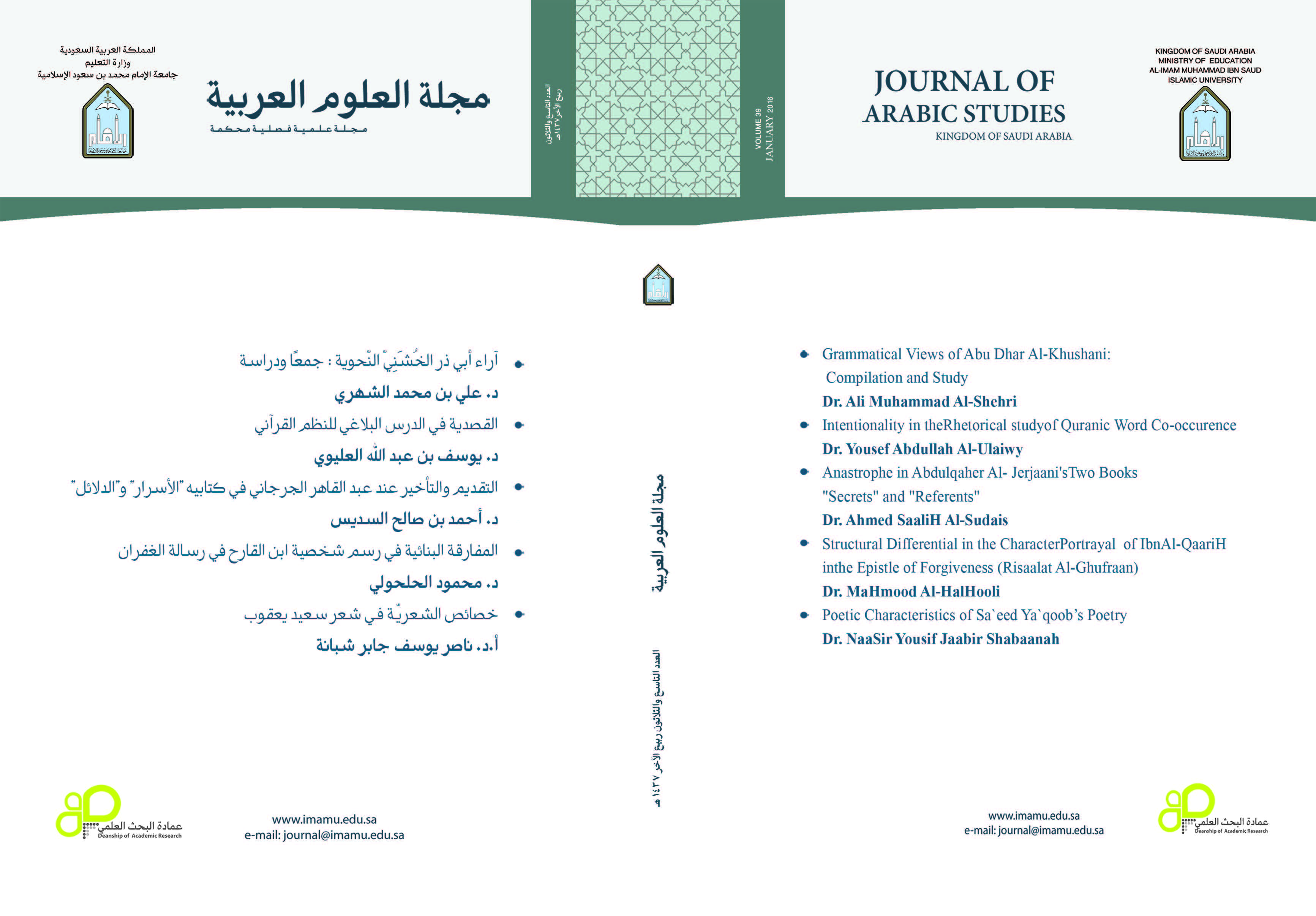Intentionality in the Rhetorical study of Quranic Word Co-occurrence
Abstract
The purpose of this research work is to establish the origin of the rhetorical and methodological foundation of research in relation to the rhetoric of the Holy Qur'an. The Research consists of an introduction and three sections. The introduction discusses the concept of intentionality and establishes its origin. The first section determines the intentionality of Quranic word co-occurrence. The Second section discusses the rules of rhetorical explication of Quranic word co-occurrence. The third section refers to recent trends positions regarding intentionality. The research findings are: first, the Holy Quran is divine discourse whose meanings are intended by its Speaker. These constant and consistent meanings never change through time or place, but people usually vary in their understanding and realization of these meanings according to their own means and abilities. Second, rhetoric scholars gave utmost care to intentionality in speech; it was prominent in their writings and their recommendations since rhetoric discloses the purposes of speech and of the speaker as well as how to make the audience comprehend speech and how to affect them. Third, the style of word co-occurrence in general, and the style of the Quranin particular, have two different functions: a semantic function and an aesthetic function. All types of word co-occurrence styles in the Holy Quran are for certain purposes, either to explain them or to affect the perception of the audience. Fourth, the Holy Quran aims at a certain word co-occurrence which expresses meaning unattainable through any other word co-occurrence. Therefore, the meanings that are drawn from the peculiarities of a word co-occurrence and the resulting constructions are intended by the revealer of the Holy Quran since the context carries that meaning and implies it; at the same time, it is not prevented by a text or ijmaa`. Fifth, considering the explications of the Prophet's Companions and their followers, it is noticeable that most of their explications are based on the rhetorical peculiarities of the word co-occurrence in their explication of the Holy Quran and of its purposes. Sixth, the rhetorical study of the Quranic word co-occurrence goes beyond structure and its peculiarities as it discloses the connotations of these peculiarities, which appear to be the ultimate purpose of Allah the Almighty because the most important functions of rhetoric is disclosing the purposes of speakers. Seventh, though rhetoric is important to understand the purposes of the Holy Quran, it can not be independent in its interpretation and indirection its Verses and terms aside from other sources such as the Holy Quran itself, the Traditions of the Prophet Mohammed peace be upon him and the views of previous Muslim scholars. If understanding the Holy Quran is independent from these considerations, this will definitely lead to mistakes. Finally, "Intentionality of Quranic word co-occurrence" is seen as one of the methodological principles on which any rhetorical methodology is based to study and interpret Quranic word co-occurrence.




